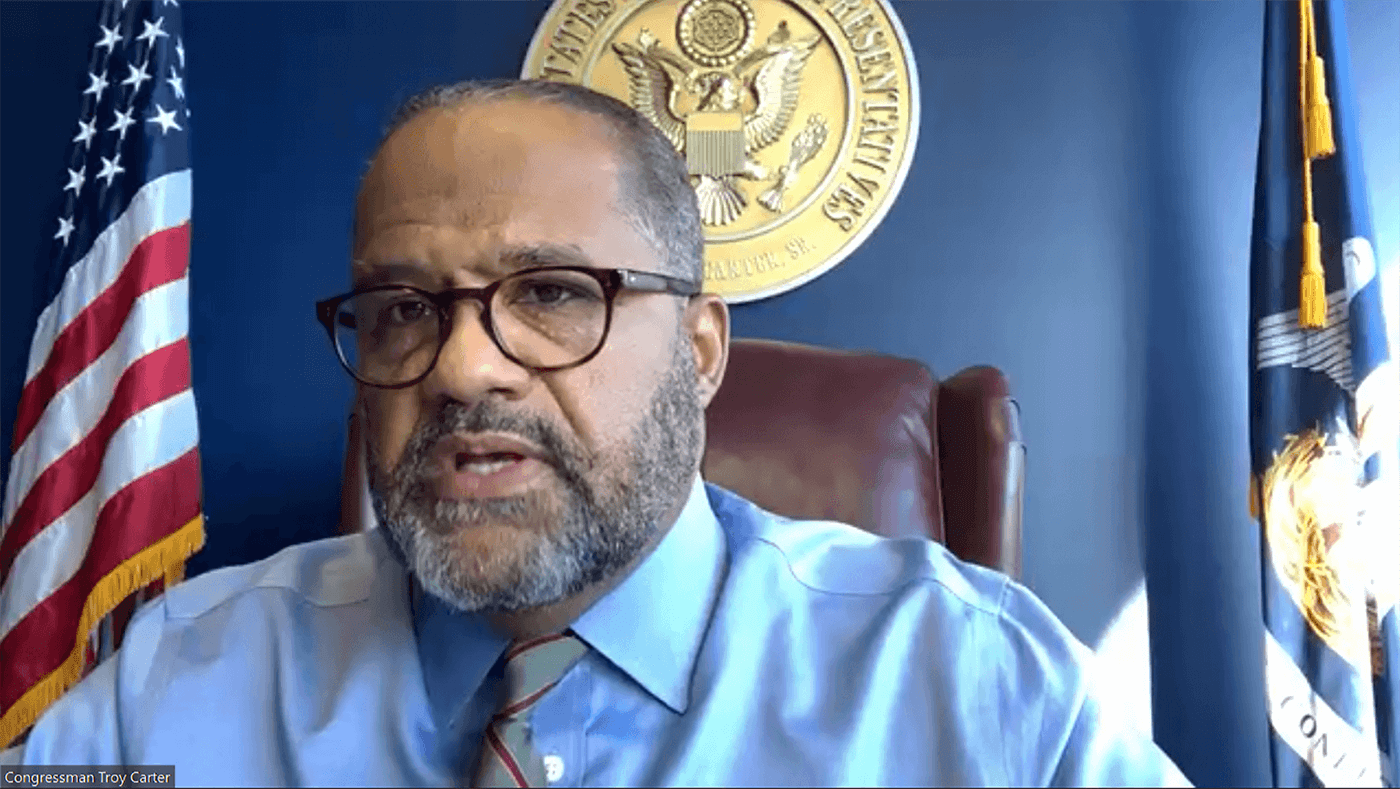By Congressman Troy Carter
In 2017, Louisiana decided that being the incarceration capital of the world had not made it safer, and that it was time to base the state’s criminal justice system on data, making it more predictable, equitable and fair. These changes were designed to keep our communities safe while providing offenders skills to be productive citizens upon their return to society.
The Louisiana Legislature worked deliberatively, keeping data and research at the forefront. We worked across party lines and ideology to develop commonsense and moral reforms. There was little opposition when the package was complete because so many legislators worked hard to get it right.
I remember because I was there alongside my colleagues in the state Senate. It was one of our finest hours.
I will never forget one district attorney who tried to kill the reforms, stating, ”I know our system is based in Jim Crow, but it has served us well and we should keep it.” This demonstrated how fragile the support for these reforms was, and how important it is that we stand our ground now.
A new Legislature is about to begin a special session dedicated again to implementing changes in our criminal justice system.
This system does need further change and support. The Department of Corrections is currently under federal investigation for mismanagement, cruel and unusual punishment and failure to simply release people on time. The Louisiana State Police are under federal investigation for covering up the misconduct of its officers. Our public defenders are so underfunded that the state is at risk of a federal civil rights lawsuit.
Unfortunately, Gov. Jeff Landry’s call does not seek to tackle these pressing issues.
His call also doesn’t provide additional resources for law enforcement or mental health services. It even puts our law enforcement officers at further risk by allowing for concealed carry without a permit. The governor’s call appears to be a callback to the very Jim Crow practices that a rigorous and data-driven process demonstrated had failed just seven years ago.
Many of the items Landry is asking for will make us less safe.
For example:
■ To require electronic access to criminal records and certain records from juvenile delinquency proceedings. This provision is an attempt to bring back legislation that was killed during the 2023 regular session. That attempt to release juvenile records in only the Black-majority Louisiana parishes was transparently racist and would have made it less likely that juveniles could get their lives on track, while doing nothing to further public safety.
■ To lower the age of a person deemed to be a ”child” for purposes of dispositions and sentencing for the commission of delinquent acts. Louisiana prosecutors have every tool they need to charge children as adults should they commit heinous crimes. This provision is attempting to try more children as adults for a broader array of crimes. This will only make it less likely that juvenile offenders have productive lives upon their release and cause high levels of recidivism.
■ To expand the use of the death penalty and reduce the number of appeals for those on death row. Louisiana gets its verdicts in death cases wrong more than any other state. Expanding its applicability would ensure that Louisiana spends millions of dollars more on appeals while increasing the likelihood of executing innocent people.
Read what others are saying
These are just a few examples of the problems in Landry’s request. There is more we can do to keep our communities safe, provide resources to combat recidivism and keep our children from ever entering the system at all, but this call does not tackle these challenges.
If Louisiana is going to get serious about reforming our criminal justice system, then we should do it the right way. I stand ready to assist by advocating for expertise and resources from the federal government and nonprofit community to get reforms right.
Let’s not return to past policies based in Jim Crow that have proven not to work. U.S. Rep. Troy A. Carter, Sr. represents Louisiana’s 2nd Congressional District. He previously served in the Louisiana Legislature and on the New Orleans City Council.


Landry doing Trump bidding.‼️
Governor Landry let’s not continue the mass incarceration of blacks for the profit of whites whom own and operate their own prisons. Second chances should be awarded to minorities and not just ppl that look like you. I pray that the law makers family members, children are incarcerated then and only then will the laws change.
Landry is a Catholic; he should be following the mantra of “Right to Life”!
Where are ALL the Right to Life” Catholic protestors? HYPOCRITES! Jesus called out the Hypocrites in the temple.
We all watched in horror when Linda Fricky was carjacked and killed by four teenagers. DA Williams said at the time all of these teenagers should have been in school. The lack of accountability for school attendance by the educators and parents is where the juvenile problem starts. If authorities, politicians and the public focused on this issue the young people would have a better chance of success. What the state legislature is doing will not improve the statistics or the future of the state.